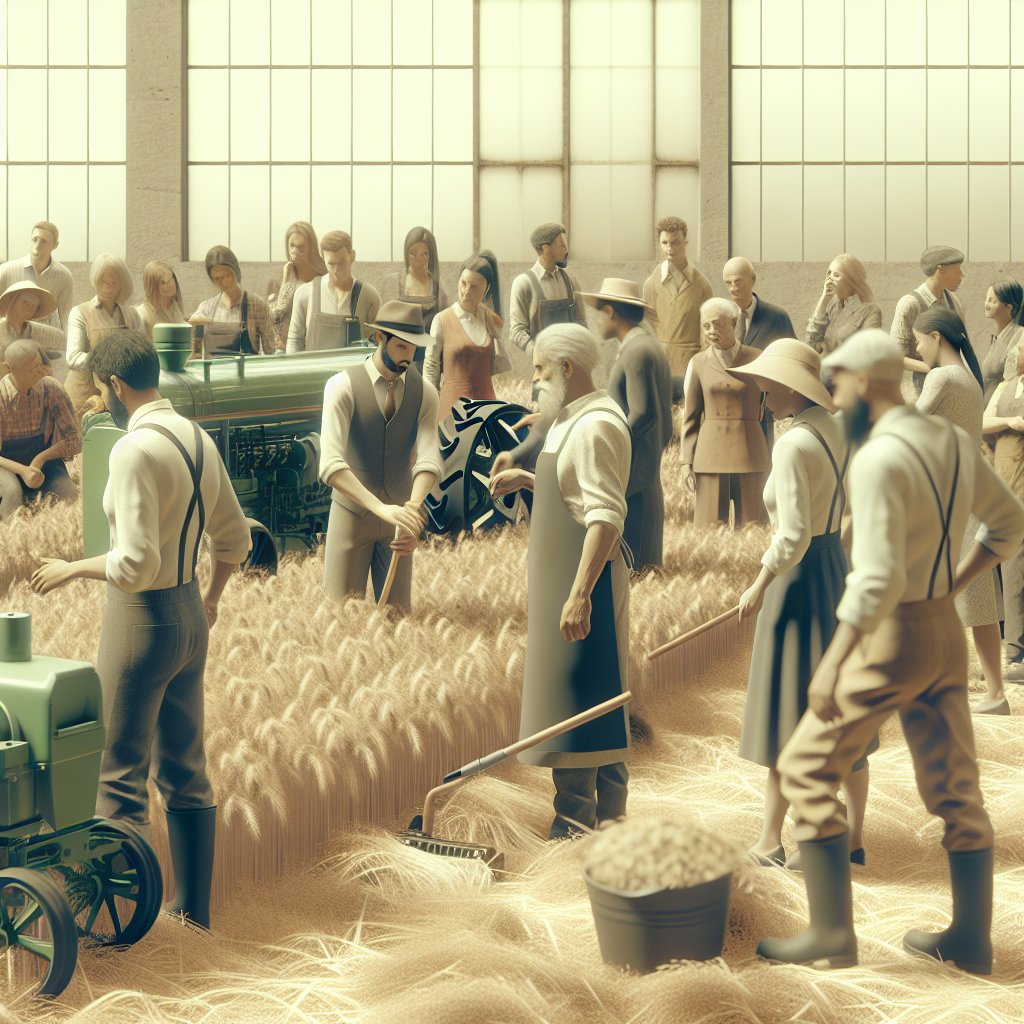The role of education in advancing farming techniques is crucial for the sustainable development of agriculture. As the global population continues to grow, the demand for food increases, necessitating innovative approaches to farming. Education equips farmers with the knowledge and skills needed to implement modern techniques, improve crop yields, and ensure environmental sustainability. This article explores the various ways education influences farming practices and highlights the importance of continuous learning in the agricultural sector.
Understanding Modern Farming Techniques
Modern farming techniques encompass a wide range of practices that aim to enhance productivity while minimizing environmental impact. These techniques include precision agriculture, organic farming, agroforestry, and the use of biotechnology. Each of these methods requires a solid understanding of agricultural science, technology, and environmental stewardship.
Precision Agriculture
Precision agriculture is a farming management concept that uses information technology to ensure that crops and soil receive exactly what they need for optimum health and productivity. This approach relies on data collection and analysis, which can be overwhelming for farmers without proper education. Training programs that focus on data management, GPS technology, and soil health can empower farmers to make informed decisions that lead to increased efficiency and reduced waste.
Organic Farming
Organic farming emphasizes the use of natural processes and materials to grow crops. It requires a deep understanding of soil health, pest management, and crop rotation. Educational programs that teach sustainable practices and organic certification processes are essential for farmers looking to transition to organic methods. By learning about the benefits of organic farming, such as improved soil health and reduced chemical use, farmers can contribute to a healthier ecosystem while meeting consumer demand for organic products.
Agroforestry
Agroforestry integrates trees and shrubs into agricultural landscapes, providing multiple benefits such as improved biodiversity, enhanced soil quality, and increased resilience to climate change. Education plays a vital role in helping farmers understand the ecological principles behind agroforestry and how to implement these systems effectively. Workshops and field demonstrations can showcase successful agroforestry practices, encouraging farmers to adopt these techniques in their own operations.
Biotechnology
Biotechnology offers innovative solutions to some of the most pressing challenges in agriculture, such as pest resistance and drought tolerance. However, the application of biotechnology in farming requires a thorough understanding of genetic engineering and its implications. Educational institutions and extension services must provide farmers with the necessary training to navigate the complexities of biotechnology, ensuring they can make informed choices about its use in their farming practices.
The Importance of Continuous Learning
In an ever-evolving agricultural landscape, continuous learning is essential for farmers to stay competitive and sustainable. The rapid advancement of technology and changing environmental conditions necessitate ongoing education and adaptation. Farmers who engage in lifelong learning are better equipped to face challenges and seize opportunities in the agricultural sector.
Access to Resources and Training Programs
Access to educational resources and training programs is critical for farmers, especially in rural areas where information may be limited. Agricultural extension services, universities, and non-governmental organizations play a significant role in providing training and resources. These programs can include workshops, online courses, and field days that focus on the latest farming techniques and technologies.
- Workshops: Hands-on training sessions that allow farmers to practice new techniques in a supportive environment.
- Online Courses: Flexible learning options that enable farmers to study at their own pace and access a wide range of topics.
- Field Days: Events that showcase successful farming practices and allow farmers to learn from their peers.
Networking and Collaboration
Networking with other farmers and agricultural professionals can enhance learning opportunities. Collaborative efforts, such as farmer cooperatives and community-supported agriculture (CSA) programs, encourage knowledge sharing and support among farmers. By working together, farmers can learn from each other’s experiences, share resources, and develop innovative solutions to common challenges.
Utilizing Technology for Education
Technology has transformed the way farmers access information and education. Online platforms, mobile applications, and social media provide farmers with instant access to the latest research, best practices, and expert advice. By leveraging technology, farmers can stay informed about advancements in agriculture and implement new techniques more effectively.
Conclusion
The role of education in advancing farming techniques cannot be overstated. As the agricultural sector faces increasing pressures from population growth, climate change, and resource scarcity, education serves as a vital tool for innovation and sustainability. By investing in education and continuous learning, farmers can enhance their practices, improve productivity, and contribute to a more sustainable future for agriculture. The collaboration between educational institutions, extension services, and farmers is essential to ensure that knowledge is effectively disseminated and applied in the field. Ultimately, a well-educated farming community is better equipped to meet the challenges of the 21st century and beyond.




